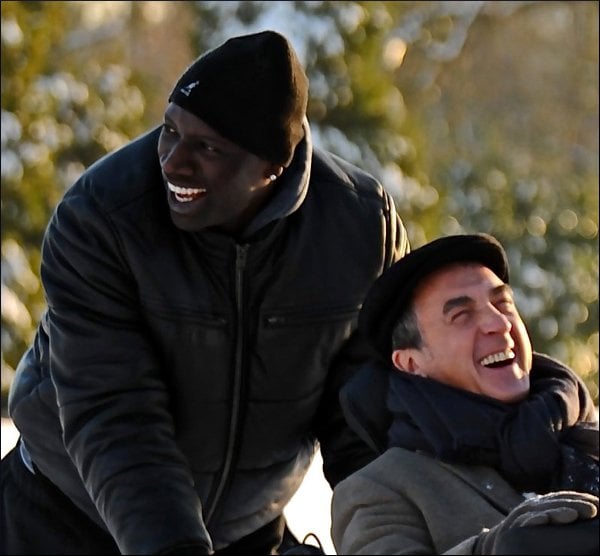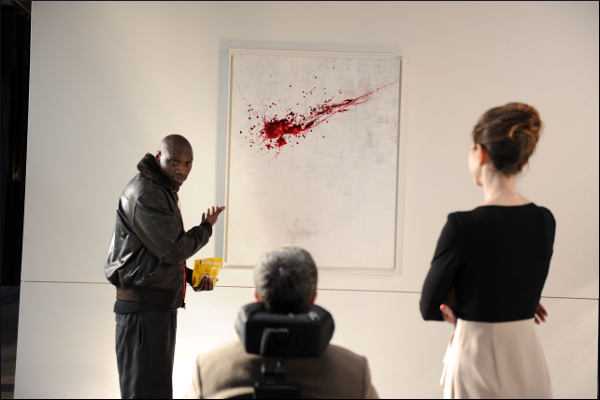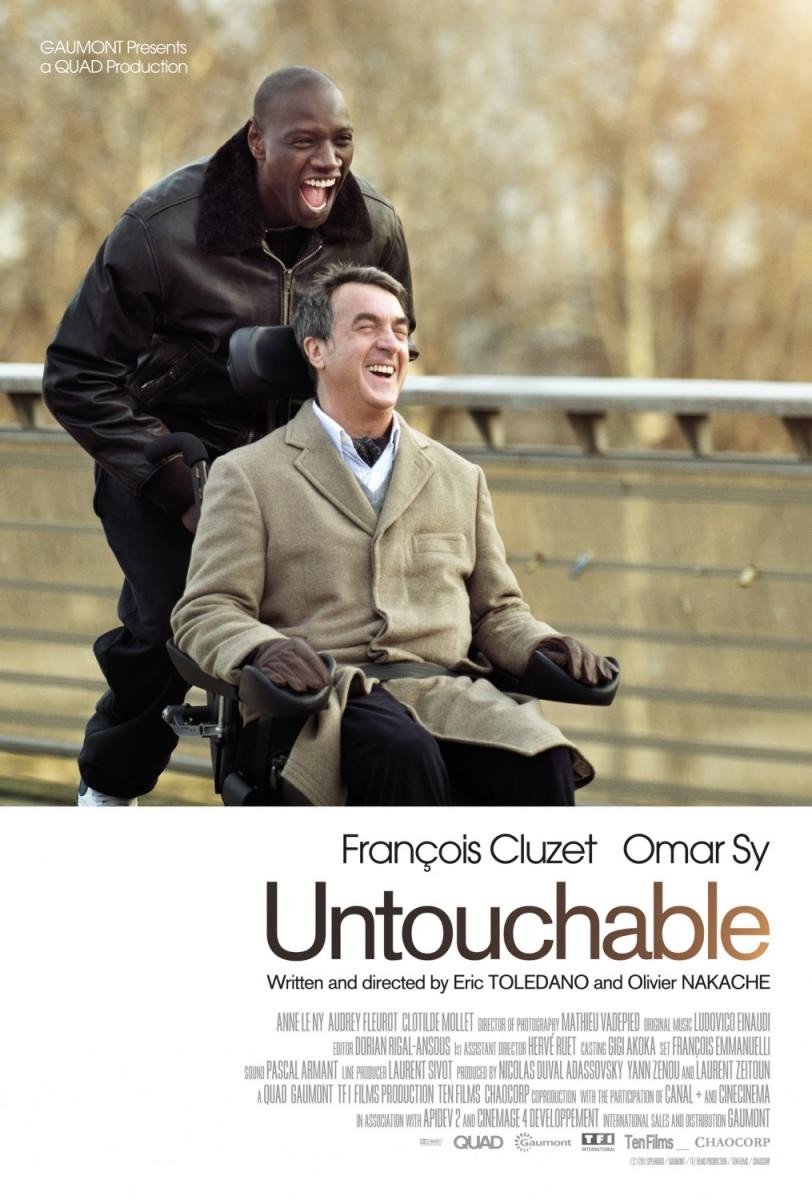Following a paragliding accident, a rich aristocrat named Philippe is confined to his home. He employs Driss to help around the house, a young guy from the suburbs of Paris who has been recently released from prison. But he is the least appropriate person for the job. Each man comes from a different background: Vivaldi and Earth, Wind and Fire; fine language and slang; suits and jogging outfits. Two realities collide and give birth to a friendship as crazy as it is unexpected.
"Intouchables is first and foremost a comedy, as humour is omnipresent."
The directing team, Eric Toledano and Olivier Nakache , came up with the idea behind this movie while watching a documentary about a quadriplegic man named Philippe Pozzo di Borgo, who hired Abdel, a guy from the suburbs, to care for him. The title of the film, Intouchables (Untouchables), refers to the circumstances surrounding the protagonists: Driss has almost no future and even his family has given up on him; while Philippe seems so fragile that no on dares get close to him, afraid that he will break. Thus, they are equally “untouchable.” The movie has received many international awards, and on March 2012, it became the highest-grossing movie in a language other than English, having earned $281 million worldwide.
The key word in this film is “disability,” since both characters are disabled in their own ways: Philippe suffers from a physical disability while Driss has a social handicap. These burdens bring them together. Both men also complement each other: Philippe is an aristocrat, a rich man who loves art and opera and speaks with literary words, while Driss lives in the suburbs, receives public aid, smokes, loves modern music, speaks slang, and uses verlan words (regular French words with inverted syllable order). They are clearly opposites, yet Philippe hires him because of this very fact, since he does not want compassion.

Intouchables is first and foremost a comedy, as humour is omnipresent. Throughout the film, Philippe uses cultivated language while Driss employs many familiar words: “un mec” or “un type” (a bloke), “une meuf” (a girl), “l’oseille” (money), “flipper” (to go crazy), “vachement” (really), “kiffer” (to love), “clamser” (to die), “les veuches” ( verlan of “ cheveux ” or “hair”), “une tuerie” (something great), “grave” (used to emphasize a meaning), “prendre le large” (to run away), and also more vulgar language, like “dégueulasse” (disgusting) and “fermer sa gueule” (to shut up).
Some words and sentences are so original, they become funny. When Driss discovers Johann Sebastian Bach, he adopts an archaic diction reminiscent of the Middle Ages, because he thinks Bach is not trendy: “Oyez, par mandat, on m'attend au château! Je dois y mener des ménestrels. Je suis bon chevalier” (Hear ye, by order, we are waiting for me in the castle. I have to bring minstrels there. I am a good knight). When Philippe writes a letter to Eleonore, he uses a passage from a poem by Baudelaire, a French writer from the 19 th century: “Ses yeux polis sont faits de minéraux, dans cette nature étrange et symbolique où l'ange inviolé se mêle au sphinx antique” (Her glossy eyes are made of minerals, in that symbolic and strange nature, where pure angel is united with ancient sphinx).
As the movie develops, the behaviour of the main characters changes. Driss eventually decides to help his family while Philippe smokes and stops taking care of himself. They are no longer who they used to be and need each other. The moral is that difference is not a threat. There are no categories for people and we can still create a united country.





